Intro
Caring for newborn babies is a highly rewarding and challenging profession, especially when it comes to those who are born prematurely or with critical health conditions. Neonatal Intensive Care Unit (NICU) nurses play a vital role in the healthcare system, providing specialized care to these tiny patients and their families. In this article, we will delve into the 10 roles of a NICU nurse, highlighting their responsibilities, skills, and the impact they have on the lives of their patients.

1. Assessment and Monitoring
NICU nurses are responsible for assessing the physical and emotional condition of their patients, which includes monitoring vital signs, tracking weight and growth, and observing behavior. They use this information to identify any potential health issues and develop a plan of care to address them.
Assessment Tools
NICU nurses use various assessment tools, such as the Neonatal Behavioral Assessment Scale (NBAS) and the Neonatal Infant Pain Scale (NIPS), to evaluate the physical and emotional well-being of their patients. These tools help nurses to identify any potential health issues and develop a plan of care to address them.

2. Medication Administration
NICU nurses administer medications to their patients, which can include antibiotics, pain medications, and other treatments. They must carefully calculate dosages and monitor the patient's response to the medication.
Medication Safety
NICU nurses play a critical role in ensuring medication safety. They must verify the medication order, check the patient's identity, and document the administration of the medication.
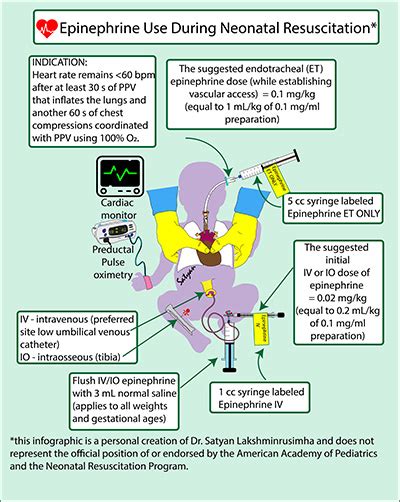
3. Respiratory Care
NICU nurses provide respiratory care to their patients, which can include oxygen therapy, ventilation, and other treatments. They must carefully monitor the patient's respiratory status and adjust the treatment plan as needed.
Respiratory Equipment
NICU nurses use various types of respiratory equipment, such as ventilators and oxygen concentrators, to provide respiratory care to their patients. They must be skilled in the use of this equipment and able to troubleshoot any issues that may arise.

4. Nutrition and Feeding
NICU nurses play a critical role in ensuring that their patients receive adequate nutrition and hydration. They may assist with feeding, which can include breastfeeding, bottle-feeding, or tube feeding.
Nutrition Support
NICU nurses work closely with dietitians and other healthcare professionals to develop a nutrition plan that meets the patient's individual needs. They must carefully monitor the patient's nutritional status and adjust the plan as needed.
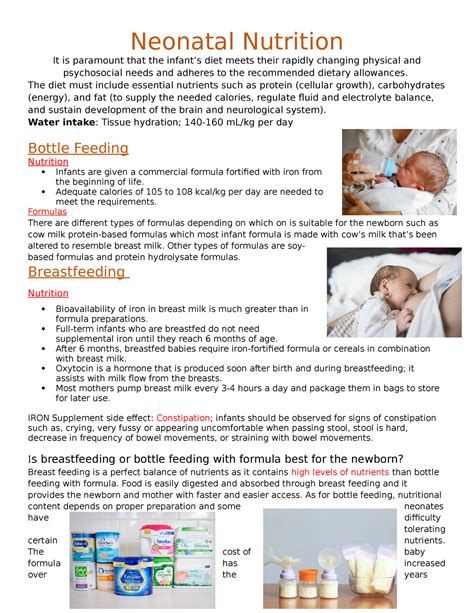
5. Pain Management
NICU nurses play a critical role in managing pain in their patients. They use various pain management strategies, such as pharmacological interventions, non-pharmacological interventions, and complementary therapies.
Pain Assessment
NICU nurses use various pain assessment tools, such as the Neonatal Infant Pain Scale (NIPS), to evaluate the patient's pain level. They must carefully monitor the patient's response to pain management interventions and adjust the plan as needed.
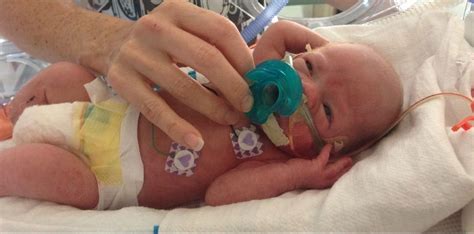
6. Family Support
NICU nurses play a critical role in supporting the families of their patients. They provide emotional support, education, and guidance to help families cope with the stress and uncertainty of having a critically ill newborn.
Family-Centered Care
NICU nurses use a family-centered care approach, which involves working collaboratively with families to develop a plan of care that meets their individual needs. They must be sensitive to the emotional and cultural needs of families and provide support and guidance as needed.
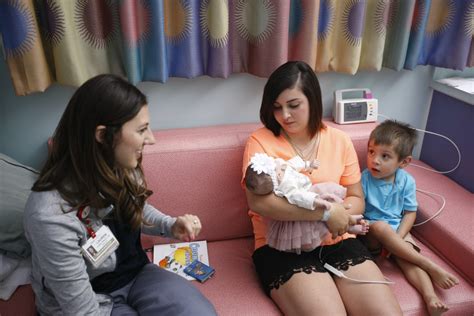
7. Infection Control
NICU nurses play a critical role in preventing and controlling infections in their patients. They use various infection control strategies, such as hand hygiene, personal protective equipment, and environmental cleaning.
Infection Control Protocols
NICU nurses follow strict infection control protocols to prevent the spread of infection. They must carefully monitor the patient's condition and adjust the infection control plan as needed.

8. Developmental Care
NICU nurses play a critical role in promoting the developmental care of their patients. They use various developmental care strategies, such as kangaroo care, skin-to-skin contact, and environmental enrichment.
Developmental Care Principles
NICU nurses follow developmental care principles, which involve creating a nurturing environment that promotes the patient's physical, emotional, and cognitive development. They must carefully monitor the patient's developmental progress and adjust the care plan as needed.

9. Discharge Planning
NICU nurses play a critical role in discharge planning, which involves preparing the patient and family for discharge from the hospital. They must carefully assess the patient's readiness for discharge and develop a plan to support the family's transition to home.
Discharge Planning Process
NICU nurses follow a discharge planning process, which involves assessing the patient's physical and emotional readiness for discharge, developing a plan to support the family's transition to home, and providing education and guidance to the family.
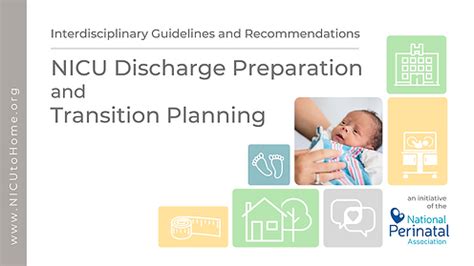
10. Education and Research
NICU nurses play a critical role in education and research, which involves staying current with the latest evidence-based practices and advances in neonatal care. They must participate in ongoing education and professional development to maintain their skills and knowledge.
Education and Research Opportunities
NICU nurses have various education and research opportunities, such as attending conferences, participating in journal clubs, and conducting research studies. They must be committed to lifelong learning and professional development.

In conclusion, NICU nurses play a vital role in the healthcare system, providing specialized care to critically ill newborns and their families. Their roles are diverse and complex, requiring a high level of skill, knowledge, and compassion. By understanding the 10 roles of a NICU nurse, we can appreciate the importance of their work and the impact they have on the lives of their patients.
What is the primary role of a NICU nurse?
+The primary role of a NICU nurse is to provide specialized care to critically ill newborns and their families.
What are some of the key skills required to be a NICU nurse?
+Key skills required to be a NICU nurse include critical thinking, communication, and problem-solving skills, as well as the ability to work well under pressure and provide emotional support to families.
What is the most challenging part of being a NICU nurse?
+The most challenging part of being a NICU nurse can vary depending on the individual, but common challenges include the emotional toll of working with critically ill patients, the high level of stress and pressure, and the need to stay current with the latest evidence-based practices.
